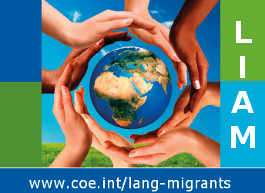Teaching methodology
Since the 1970s the Council of Europe has promoted an approach based on the communicative needs of learners and the use of materials and methods that are appropriate to their characteristics as learners. Diversity of learner needs and characteristics necessarily generates diversity of objectives, methods and materials. Accordingly, the organisation does not favour one particular teaching methodology over others.
In the 1970s the Council of Europe’s own pioneering work on needs analysis distinguished between objective and subjective needs. Objective needs are defined in terms of the communicative tasks that language learners will be required to perform in a given situation, while subjective needs have to do with factors like attitude and motivation, learning style, learning aptitude and learning skills. Language courses for adult migrants are more likely to succeed and the learners themselves are more likely to be positively motivated if the courses are based on a careful analysis of learners’ objective (or social) needs and are taught in a way that responds to their evolving subjective (or individual) needs and takes account of their educational background and experience.
Since the 1970s the Council of Europe has also promoted the idea of lifelong language learning. This is clearly relevant to adult migrants, whose proficiency in the language of the host country should continue to develop over the course of their lifetime. Lifelong language learning is a matter not of non-stop attendance at language courses but of acquiring learning skills that can be applied outside the classroom, in the course of daily life. One of the purposes of the European Language Portfolio is to support the development of such skills, which may help to explain why it has been particularly successful when used with adult migrants.
Although the Common European Framework of Reference for Languages does not favour any particular teaching methodology, its action-oriented approach to the description of language proficiency assigns a central role to communicative tasks in the teaching/learning process.
The website of the European Centre for Modern Languages (ECML – www.ecml.at) provides a wide range of materials, supports and case studies arising from the Council of Europe’s language education policies.
DL
Related resources
- Education: Tailor-made or one-size-fits-all? A project commissioned by the Nederlandse Taalunie, 2008, ITTA/Elwine Halewijn; CTO, Annelies Houben, Heidi De Niel
EN FR
- Responding to the language needs of adult refugees in Ireland: an alternative approach to teaching and assessment, 2008, David Little
EN FR
- European Language Portfolio: Adult Migrants learning the language of the host country, 2012, Barbara Lazenby-Simpson, accompanied by an Introduction and a Handbook for Teachers
EN FR IT



